6 Body Changes Caused by Drinking Soda, According to a Diet Expert

As a certified nutrition coach, I meet a lot of people who love soda. For many of them—maybe even including you—drinking it is an enjoyable habit, a lifestyle choice, maybe even a status symbol. But believe me, there's nothing sexy about it. Want proof? If you have corrosion on a car battery, it can be really hard to get rid of. One way to get rid of it is to pour Coca-Cola on it, and the corrosion immediately dissolves. That's the same substance you are drinking. Think about that.
There is no "good" soda—even the diet ones should be avoided. Many new brands and flavors are popping up with the promise of being healthier. Whether something is made from natural cane sugar or has zero calories, it's still just simply bad for you. Society has conditioned us to drink soda regularly, but we should not. It's on the shelves at every store, it's offered as part of a "meal" at fast food restaurants, and celebrities endorse it on TV. The truth is soda should be considered an occasional treat, such as eating a piece of cake, but not a standard part of your diet. Here are 6 disgusting things drinking soda does to your body.
Soda is a "Calorie-Dense" Food That Makes You Bloated and Gassy

Soda is what we call a "calorie-dense" food. This means this food has almost no vitamins or other nutrients, just pure calories. Compare this with nutrient-dense foods such as fruits, vegetables, nuts, meat, etc. Nutrient-dense foods make you feel appropriately full, reduce cravings, give you sustained energy, and set you up for long-term health. On the other hand, calorie-dense foods like soda make you feel bloated and gassy, lead to more food cravings since your body lacks the nutrients it wants, cause an energy spike and crash, and can lead to other negative long-term health effects. Soda is one of the main contributors to unhealthy weight gain in the standard American diet.
Related: 3 Simple Weight Loss Tips You'll Wish You Knew Sooner
Soda is Made With Refined Sugar, Leading to Health Complications
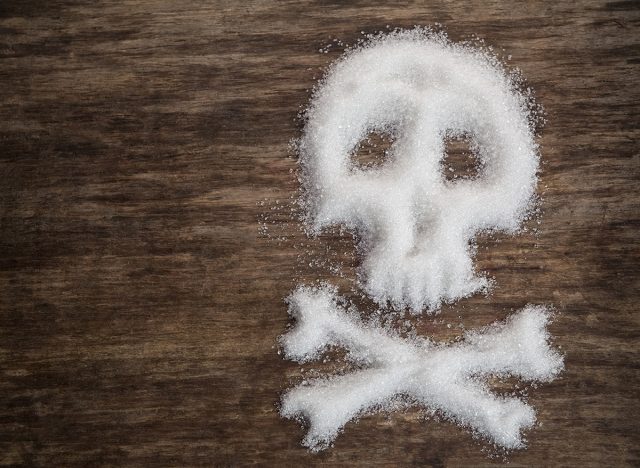
Another negative quality of soda is that almost all of them are made with refined sugar. Sugar occurs naturally in foods like fruit or potatoes, but your body processes sugar from whole foods differently. Refined sugar means almost all nutrients are removed, spiking your blood sugar much faster. In the short term, this leads to energy crashes or cravings, and in the long term can lead to diabetes or other health complications. Refined sugar also affects almost every part of your body, including your brain. Refined sugar can even be addicting. Studies have shown addiction to sugar can develop with many similarities to drug-like addictions.
"Sugar Free" Sodas Sound Too Good to Be True
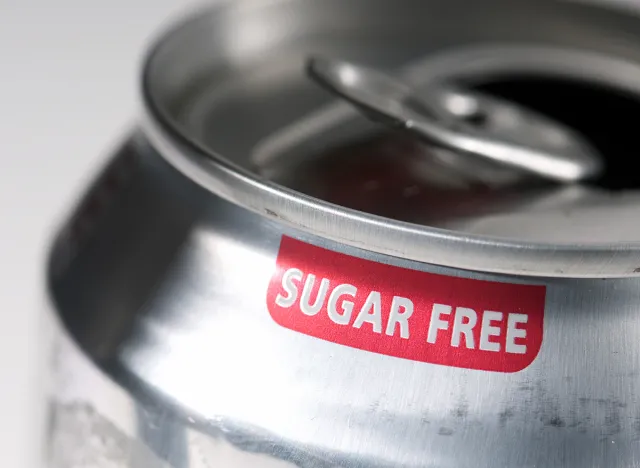
For sodas that are "sugar-free," they almost always use artificial sweeteners to achieve that sweet taste. This is a much more complex topic, but in short, it's important to remember if it sounds too good to be true, it is. Almost all artificial sweeteners have side effects and can affect your gut health, your hunger levels, and more.
Soda Calories are Drinkable, Leading to Excess Calories
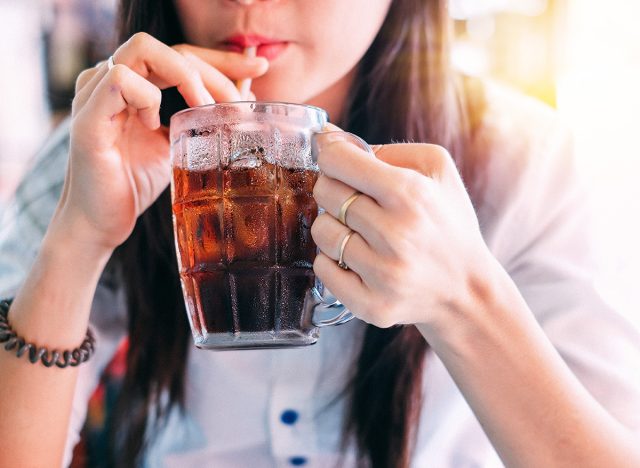
Soda calories are drinkable. Generally, it is easier to overconsume calories in liquid form than in solid form. Sugar alone does not cause weight gain. Weight gain is caused by eating more calories than you burn. However, sugar is incredibly tasty and calorie-dense, which means we consume way too much of it, which leads to excess calories. Excess sugar can also lead to more cravings, poor sleep, and even sugar addiction, which can all lead to weight gain.
Related: 4 Incredible Ways Your Body Changes When Intermittent Fasting
Soda is Bad For Your Teeth
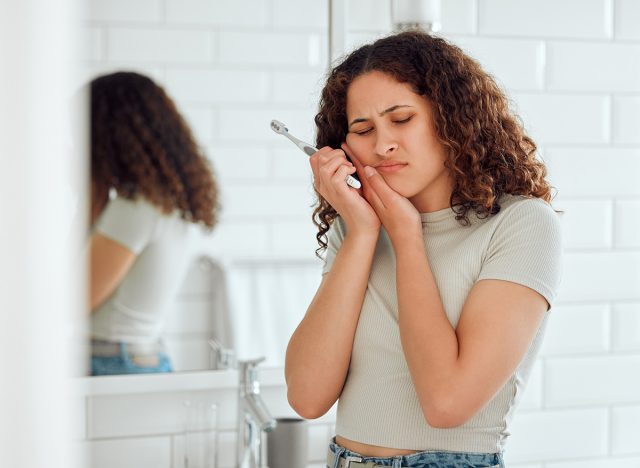
Soda is bad for your teeth in many ways, including the sugar, the acid, and the dark coloring, if there is one.
Soda's Caffeine Can Have Bad Effects on Your Blood Pressure and Sleep

Caffeine is included in many sodas, which can have negative effects, particularly on blood pressure and sleep. One thing to remember is that caffeine has a very long "half-life." In other words, if you drink a soda at 4 pm, the effects of the caffeine might not wear off until 4 am or later. Even if you don't feel a buzz or feel awake, it's still blocking the tired receptors in your body and can lead to poor sleep. Most people don't realize this. I always advise having caffeine no later than lunchtime unless you're certain it doesn't affect your sleep.
RELATED: The 20-Minute Full-Body Blast for Busy Schedules
Ditch Your Soda Belly!
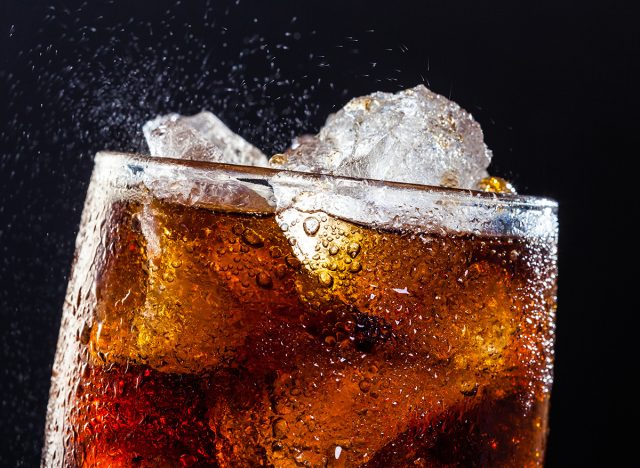
Give up soda. It can be hard at first, but after just a few days, you will feel so much better that you will never return. For help in how to do it, don't miss my other article here on Body Network: What Happens to Your Body When You Stop Drinking Soda.
💪🔥Body Booster: If you drink a soda at 4 pm, the effects of the caffeine might not wear off until 4 am or later. Avoid having caffeine no later than lunchtime unless you're certain it doesn't affect your sleep.
Andrew Hayes is the Founder & Head of Lifestyle at Alta Coaching




